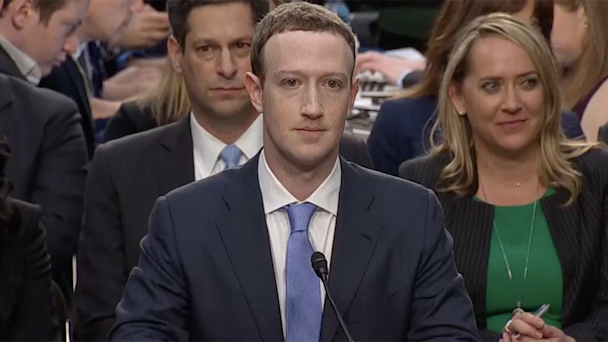Mike Cooper: Has messaging reached a tipping point following Zuckerberg’s Senate schooling?
Mid-way through 2017, Facebook’s CEO Mark Zuckerberg, told analysts clambering for details on how the social network intends to monetise messaging: “The biggest strategic thing that we really need to do in messaging right now is make it so that people organically interact with brands and that it’s a good interaction, both for the people and for the businesses.”

By the time Facebook’s founder found himself in front of the U.S. Senate, having to explain that if Senator Brian Schatz ‘emailed’ over WhatsApp about the Black Panther movie, he wouldn’t then start seeing Marvel advertising appear on his Facebook feed, Zuckerberg must have wondered if the staggering ignorance shown by his country’s lawmakers could in fact stifle all the progress and potential of messaging.
While the U.S. Senate is still trying to get its head around Facebook’s ‘free service’ business model (‘Senator, we run ads’ will be the must-have T-shirt slogan at Cannes Lions this year surely), the rest of us should focus on helping clients better understand messaging concierge services and their place in an increasingly privacy paranoid world.
Facebook Messenger’s 1.3 billion monthly users already exchange more than two billion messages with businesses each month. That volume will continue to rise, due to platform features designed to encourage better marketing engagement. But brands need to better understand such features and how to integrate progressive messaging capabilities into communication strategies more responsibly.
For example, brands can now add a customer chat Messenger plug-in to their own website. Up until earlier this year, brands have had to treat customer interactions on Messenger as an additional channel. Not any more.
The integrated chat option not only allows brands to start a conversation from their own website and maintain the thread within the Messenger app, it also empowers companies to offer a more conversational concierge service via prompts, language recognition, PayPal payment integration, and more.
If someone is looking up baggage allowance information on an airline’s mobile website for instance, a Messenger prompt could appear, enabling the user to ask a direct question.
Should that traveller then want to ask about flight times at a later point, they can pick up their conversation thread with the airline at any time via the Messenger app.
Conversational concierge services have the potential to evolve from there.
Sticking with the airline example, users will soon be able to pay for flights from the chat app, add diary dates, order in-flight meals and even download boarding cards.
It’s vital therefore that brands help build trust in the consumer value exchange, via complete transparency around what happens to the information provided within chat once the conversation is completed.
Third party developers are being given the keys to messaging concierge technology platforms, such as the Facebook-owned WhatsApp, and consumers will need to know that brands and their agencies are acting with integrity as increased brand conversation experimentation begins.
Facebook won’t be the only messaging trailblazer in 2018 either.
Apple introduced its ‘Business Chat’ during its 2017 Worldwide Developer Conference, allowing customers to start conversations from Safari, Maps, Spotlight and Siri, with those brands who have it integrated into their apps on iOS 11.
Apple’s ambitions for Business Chat include allowing customers to schedule appointments, and make payments via Apple Pay, in addition to facilitating customer service questions.
Customers must send the first message to start a Business Chat conversation (an invitation of trust in the service), but once it begins, a business can then schedule diary appointments, send notifications, make sales, and offer a range of other services.
No doubt the thinking behind Business Chat is to empower users to communicate directly with brands via iMessaging from any Apple device, in order keep people within the Apple ecosystem.
Theoretically, it would dissuade them from visiting websites where they could end-up engaging with a brand via Facebook Messenger or paying via rival PayPal.
This growing rivalry for messaging platform dominance between not only Facebook and Apple, but also Google Assistant and Amazon’s Alexa as well, will accelerate how messaging concierge services merge into our everyday lives.
For brands to capitalise on this potential tipping point in messaging’s evolution however, strategies need to feature both meaning and trust, so that even an ageing Senator can understand the benefits versus the information value exchange.
Mike Cooper is PHD Media's worldwide CEO.
